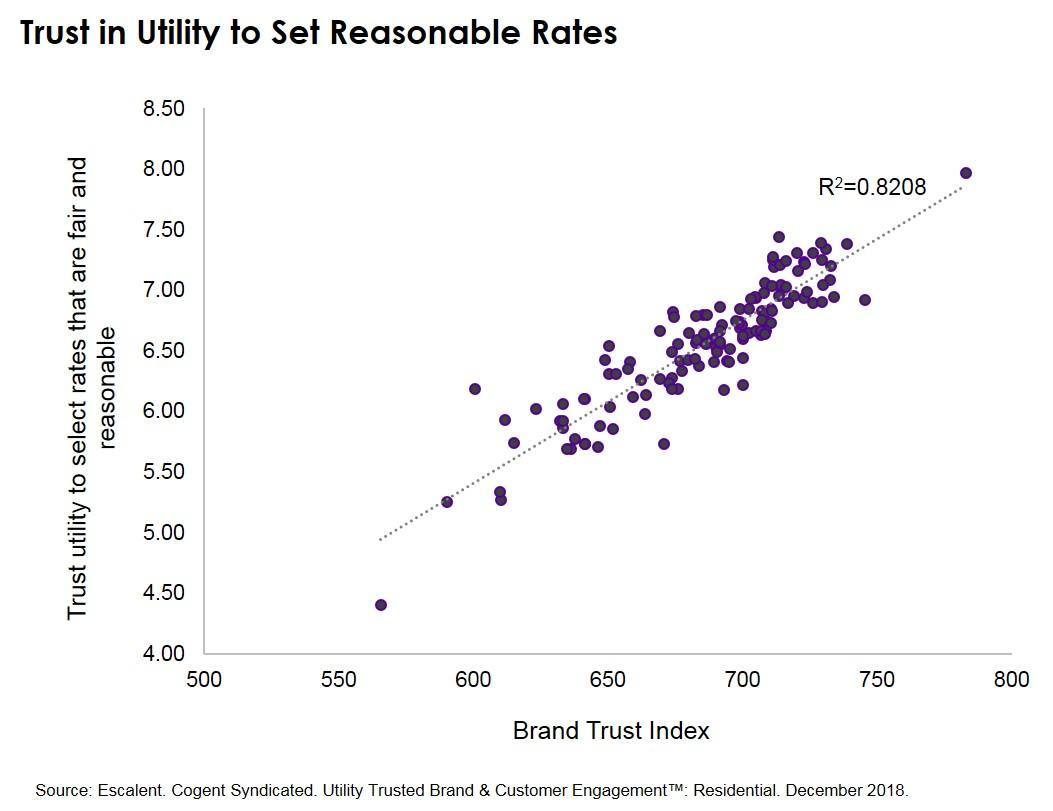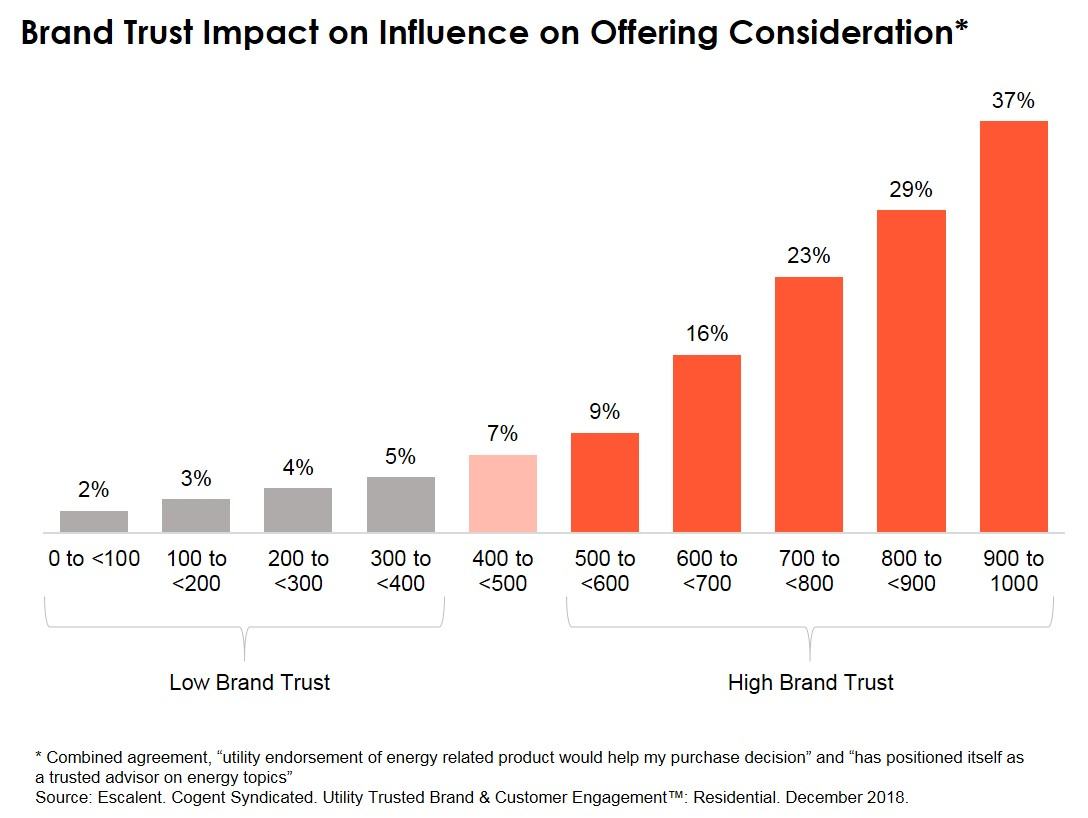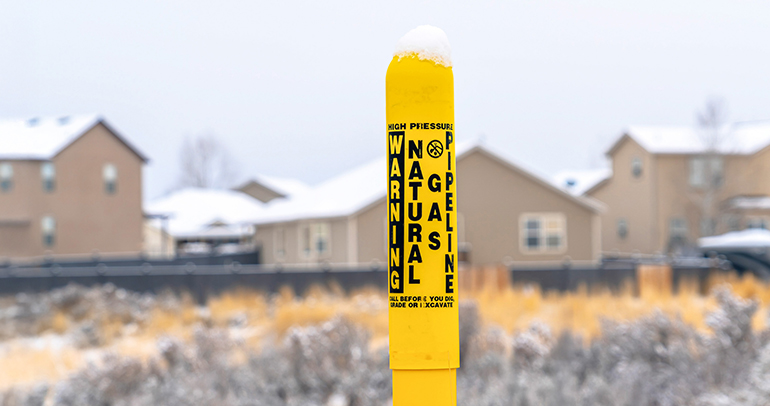
In competitive markets, brand strength has long been associated with positive business outcomes, including growing revenue through increased market share, elevated pricing power and higher customer loyalty. While market share and customer loyalty haven’t historically been things utilities think about, they are taking on a new strategic importance as the tectonic plates underpinning the 21st century energy market continue to shift.
Utilities are beginning to manage their brands to support the new market challenges they face—from implementing new rate structures to figuring out how to sustain financial growth. Successfully navigating these challenges requires strong brands with enough emotional leverage to persuade consumers to come along on the journey to a new energy future.
Our Utility Trusted Brand & Customer Engagement study, now in its sixth year, focuses on the impact of brand on customer engagement for the utility industry, making Escalent the undisputed leader in brand insights for utilities. Through this research, we’ve identified three elements of brand value for utilities:
- Enhanced pricing power via customer support for higher rates.
- Revenue growth by capturing market share for new product offerings not protected by the utility’s monopoly position.
- Lower risk of customer and load defection as customers consider distributed energy resources and dis-intermediators.
But First … What Is Brand Trust?
Our Utility Trusted Brand & Customer Engagement study has identified six factors that relate to the emotional and functional elements of utilities’ brands:
| Emotional Attachment | Functional |
| Customer Focus | Communications Effectiveness |
| Company Reputation & Advocacy | Reliable Quality |
| Community Support | Environmental Dedication |
Each of these factors is developed from a number of distinct customer perception attributes and combined into an overall Brand Trust score on a 0-to-1,000 index. Our research has shown Brand Trust to have a significant positive impact on utilities’ customer-facing activities, putting utilities with high Brand Trust on steadier ground in this time of uncertainty and transformation.
Rates and Brand Trust
Historically where regulated utilities have made their money, via an authorized rate of return, rate cases are typically viewed by utilities as negative events for customers. As a result, many utilities have approached customer communication around rate cases with an eye toward mitigating declines in customer satisfaction.
However, our research shows that not only are customers with higher Brand Trust more supportive of utility rate increases, but an out-front communication strategy that explains to customers the reason for the rate case can actually improve rate perceptions. Utilities with high Brand Trust have customers who are much more likely to trust their utility to set fair and reasonable rates. Additionally, we see a similarly strong correlation between Brand Trust and the perception that the utility offers reasonable rates for services provided—that is, value. These effects are independent of how much customers actually pay for their energy. The implication for regulated utilities is that activities that positively impact Brand Trust enhance pricing power and better position the utility for future rate cases.

Capturing Market Share
Many utilities, facing nonexistent load growth (at least until 2018) and commission reticence to approve additional investment, have been looking to new products and services as a way to grow revenue. Many of these offerings, such as solar options and technology marketplaces, face competition from non-utility companies. Brand Trust plays a significant role in positioning utilities ahead of these non-utility entrants to capture market share for these offerings.
Our data show that utilities with strong Brand Trust have more influence on customer purchase decisions and are, therefore, more likely to be considered as a provider for new offerings. High Brand Trust also increases the likelihood of utilities converting that consideration to use of competitive offerings. Based on an analysis of 30 different product offerings, a 100-point improvement in Brand Trust scoring is associated with nearly 3% higher use, a significant edge in competitive markets. Last but certainly not least, customers with high Brand Trust are three times more likely than customers with low Brand Trust to recommend their utility’s offerings to others, creating a virtuous cycle of adopters begetting adopters.

Protecting the Franchise
While regulated utilities still enjoy a monopoly position, that position is beginning to erode. The forces causing that erosion vary across the country—in some states, prices are high enough to make distributed generation self-supply a valid option, while in other states, fed up customers are choosing other ways to procure their energy such as community choice aggregation or “digital utilities” like Arcadia Power. While these forces do not present an imminent risk to utility franchise value, they certainly have negative long-term implications.
Here, a lack of Brand Trust is the biggest concern for utilities. Customers scoring their utility below 400 are nearly 50% more likely than customers with the highest Brand Trust to switch to another viable energy provider if available. Utilities that are focusing on their brand are, therefore, more likely to weather these market forces than those that are not.
The Power in Brand
These findings show the power of brand value to utilities. Building and investing in a utility’s brand provides greater pricing power and higher market share for competitive offers and inoculates the utility against future customer and/or load defection by improving customer loyalty. If you would like to learn more about how to improve your utility’s Brand Trust and build brand value, please contact me.
Click below for more information on the study.
Note: This blog was updated on March 27, 2025.









